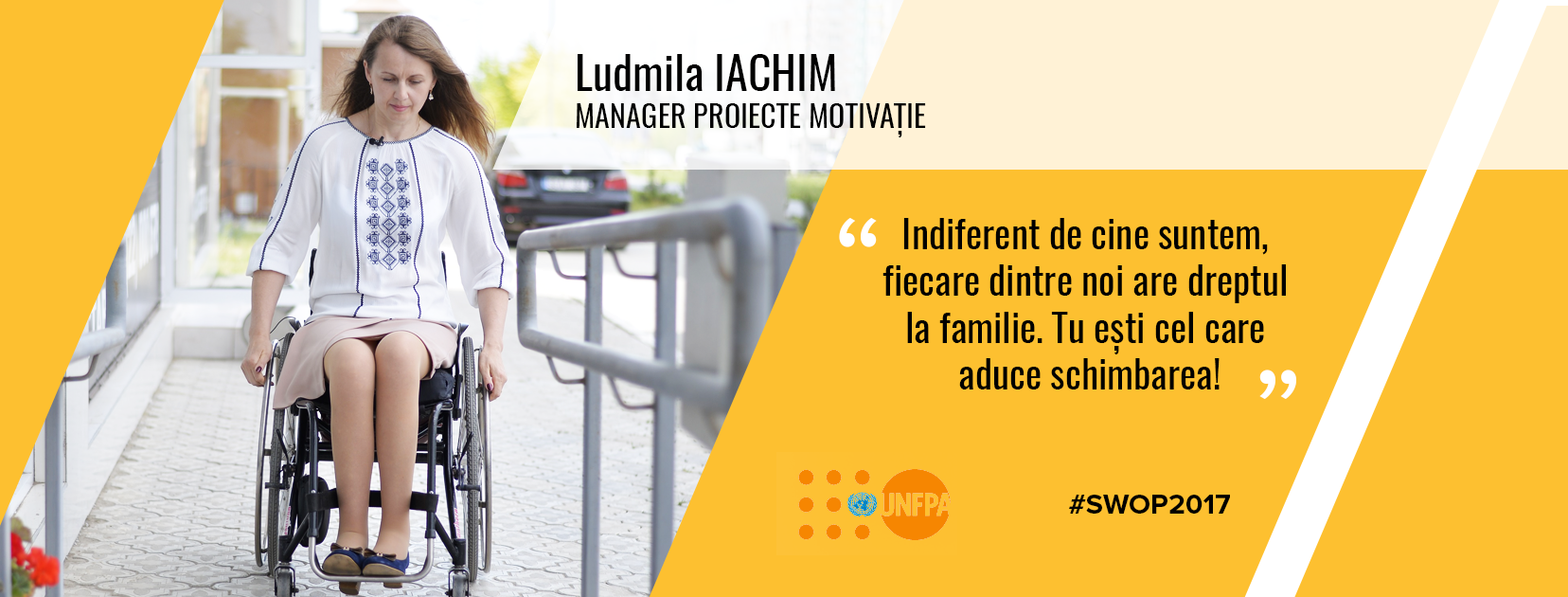
WHAT: Media event to launch the SWOP 2017 with a focus on the sexual and reproductive rights (SRH) of persons with disabilities (PwD), particularly young girls and women, to trigger public discussions on this topic. Promote a good practice of ensuring access to SRH by the network of Youth Friendly Health Clinics (YFHC), which are equipped with gynecological armchairs adapted to the needs of PwD.
WHO: UNFPA, United Nations Population Fund, Swiss Cooperation Office SDC, Ministry of Health, Labour and Social Protection in partnership with AO „Motivatie” and Neovita YFHC
WHEN: 18 October 2017, 11:00-12:30 am
WHERE: “Neovita” YFHC, Chisinau, Socoleni, 19, street
PARTICIPANTS:
- Stela Grigoras, Minister of Health, Labour and Social Protection
- Rita Columbia, UNFPA Representative
- Simone Giger, SDC Representative
- Young girls and women with physical disabilities, medical staff
- Media
WHY: The right to health, including sexual and reproductive health, is a key human right; however, women and girls with disabilities face many barriers in accessing it. There are more than 187, 000 persons with disabilities in Moldova, around half of them are women and girls. According to a recent Study , addressability to healthcare services in the Republic of Moldova is the lowest among persons with disabilities (only 16% compared to 57% in general population). Another situation review explains why: difficult physical access in medical facilities, lack of ramps and elevator to the floor where the family physician’s/gynecologist’s room is located, lack of adequate medical equipment and negative attitudes of doctors, often intimidate women and girls with disabilities to demand for sexual and reproductive health rights.
While there are many difficulties in this area, Moldova with support from development partners is also acknowledging the progress. The equipment of 30 YFHC from all of the country with chairs for women and girls with disabilities as part of SDC support is a good example. These services need to be further promoted in order to increase their demand from the target beneficiaries and raise awareness of the medical staff for providing confidential and trust-worthy SRH services.

